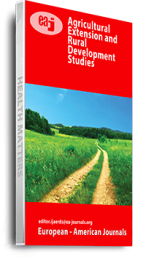Finger millet is still neglected cereal crop mostly grown and consumed by resource-poor people mainly in arid and semi-arid tropics. The projected food demand of the global population will pressure plant breeders to secure the demand by improving the yield of major cereal crops. To meet this demand, there is a consistent need to look beyond the conventional farming system to increase production and productivity in sustainable ways. However, finger millet production and productivities are limited by many factors namely biotic and abiotic. Of biotic factors, finger millet blast disease is the most limiting factor. The disease is caused by the filamentous ascomycetous fungus called Magnaporthe oryzae. Under favorable conditions, the pathogen can devastate the entire field in all finger millet growing regions. Moreover, the frequent breakdown of blast resistance causes significant yield losses worldwide. The utilization of innovative and efficient research strategies guarantees future sustainable production of finger millet. Therefore, exploring an advanced breeding methodologies presently being used and discussing future directions for development of blast resistant varieties will help providing a broad understanding concept for finger millet breeding.
Keywords: Finger Millet, blast disease, breeding methodologies, control method

